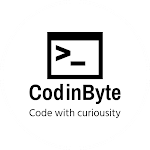How many times have you heard someone ask which programming language they should learn first? Depending on your experience, you might feel confident answering this question immediately. However, learning to program can be intimidating to those who haven’t done it before, and picking the right language can make or break your confidence and future success in the field. That’s why I put together this guide on which programming language to learn first. I’ll tell you everything you need to know about each of the popular choices and help you pick out what’s best for you from there. Let’s get started!
If you are an individual, then start learning C.
C is a fairly easy programming language to learn and will give you a solid foundation in computer science. Even if you’re not interested in computer science, it’s still worth learning because so many languages are based on C (Java, Python, Ruby, etc.). Basic C syntax can be learned in about a week and there are plenty of free resources online for reference. C is also useful for understanding how computers actually work under the hood which isn’t something that other programming languages teach. If you want to build programs on your own personal computer then start with learning C.
If you are in the IT industry then start learning Java.
Learning a new programming language can be both frustrating and fulfilling, depending on how you look at it. As with many things in life, however, practice makes perfect. And once you get your feet wet and get rolling, you’ll find that coding is an incredibly powerful tool to have in your proverbial belt. Even if that belt isn’t wrapped around a lithe waist—you know what we mean. So without further ado: Here are five great reasons why you should start learning Java right now.
The third programming language to learn is Python.
Python is a simple and powerful programming language, which makes it easy to get started learning how to code. Its clean syntax and dynamic typing can take some getting used to if you’re just switching from using C or Objective-C, but if you keep your cool, Python will be your friend for life. The straightforward syntax is especially helpful for beginners since there are fewer things to keep track of in your head while coding. You don’t have to worry about semicolons or parenthesis. Instead, indentation signals where one block of code ends and another begins; each block gets its own level of indentation based on how deeply nested it is in relation to other blocks above it on the same level in a program.
The fourth programming language that you can pick up as your choice is R.
This is a statistical programming language, which is an extension of S. This language can be used for both commercial and non-commercial purposes. The history of R begins with that of S and was started by Ross Anderson and Robert Gentleman at Oxford University in 1993. Currently, in 2018 it stands at seventh position among the top 10 languages and has been declared as a general-purpose programing language. It deals mainly with data frame objects and matrix classes to carry out its operations.
Is HTML important for web development?
Any developer worth his salt will tell you that HTML is important when you're developing websites. HTML is a simple programming language used to create content for web pages. Without HTML, there'd be no CSS (Cascading Style Sheets), which controls how your website looks, or JavaScript, which adds interactivity to your page. So, yes: If you want to make anything more complicated than a simple landing page for your business, consider becoming fluent in HTML—even if it's not your bread and butter as a programmer. Your future self will thank you.
Conclusion
If you're interested in learning to code, HTML and CSS are great places to start. Both coding languages are relatively simple (even if their syntax may seem foreign at first), and don't require any additional tools to get started—which means you can work on them from pretty much anywhere. From there, feel free to explore further with JavaScript or Ruby, both of which will help expand your coding vocabulary even more. Whatever you choose, however, remember that it's important not only to pick up a language but also to develop your own style and voice while doing so. Learning how to code is a step toward building something bigger than yourself—and it's also an opportunity for self-expression through lines of code.
HTML code to display a text programming language with size 4 and type Calibri
.an_account_join_1 {
float:left;
width:100%;
color:#000000;
letter-spacing:2px;
font-size:14px;
text-align:center;
margin:20px 0px; font-family:Calibri (Body); } <div class="an_account_join_1">Individual Free Membership</div>
Here is the code for the query

